In this article:
Health is quickly becoming a priority for everyone all over the world. With the availability of information at the tip of our fingertips, the changes that need to be undertaken in order to lose weight, manage chronic illnesses through diet, or maintain overall health are not entirely unknown.
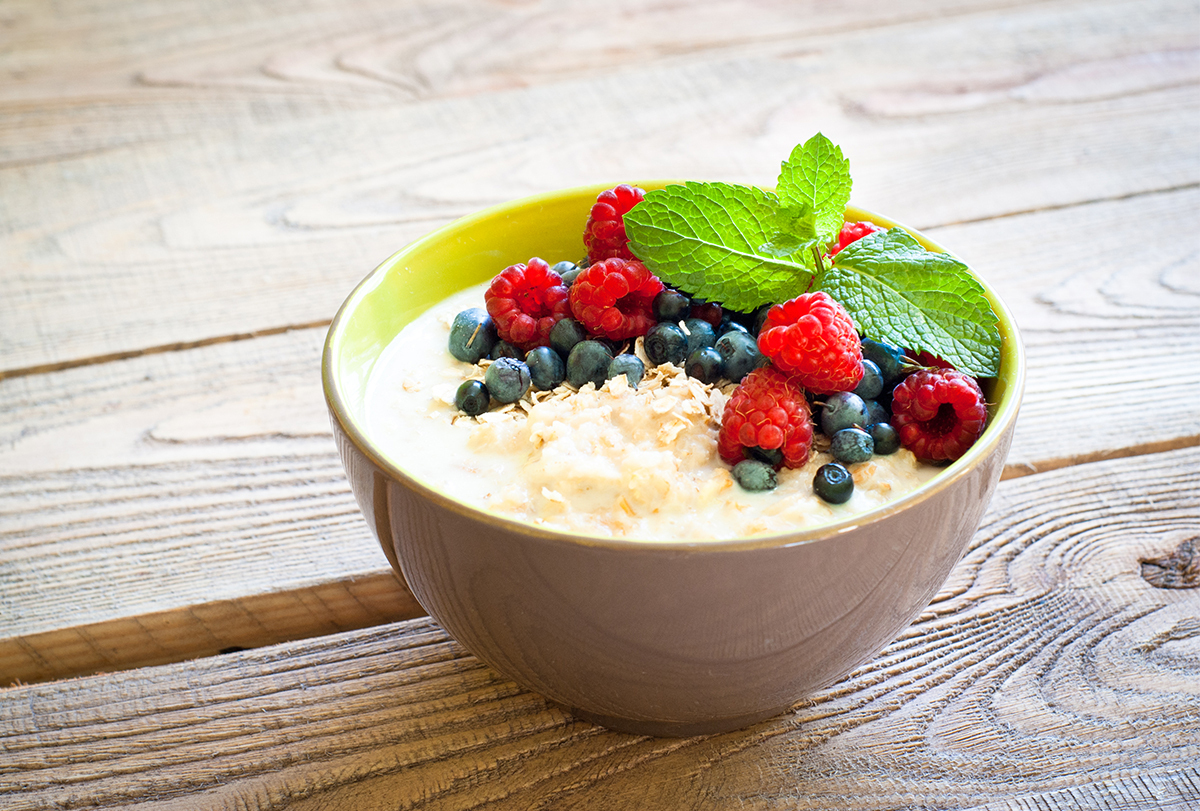
Low-calorie foods are usually a safe choice to consume for people looking to reduce weight. They provide satiety at a higher volume without the addition of calories, unlike other foods that are deep fried or generally considered unhealthy.
Top Ridiculously Low-Calorie Foods
Here are some of the easily available low-calorie foods that not only are easy to consume but also offer several health benefits.
1. Oats
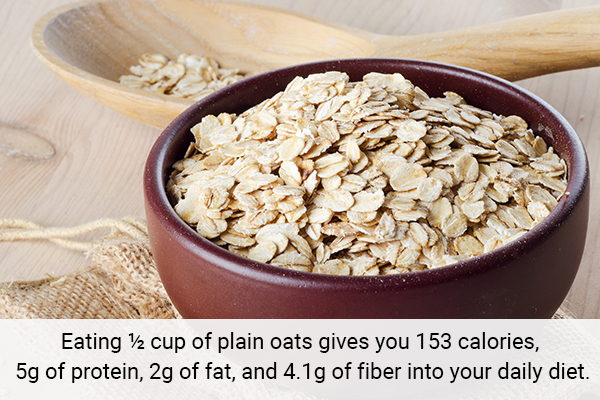
Eating ½ cup of plain oats gives you 153 calories, 5 g of protein, 2 g of fat, and 4.1 g of fiber. (1)
Dietary fiber is associated with increased satiety. Beta glucans, the soluble fiber in oats, have been found to increase the feeling of fullness, reduce weight, and also decrease the amount of cholesterol in the blood. (2)
In one study, oatmeal increased satiety, reduced the feeling of hunger, and resulted in lesser calorie consumption at the next meal in adults. (3)
2. Greek yogurt
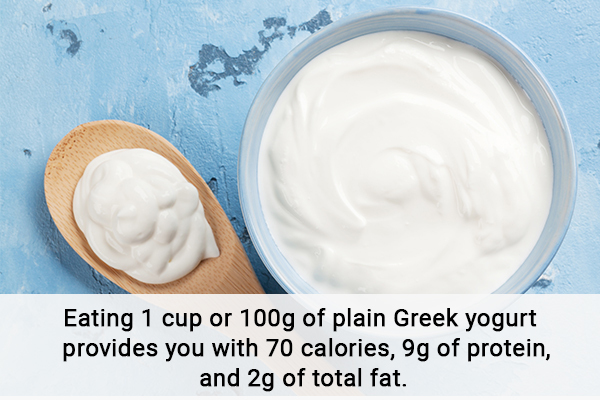
Eating 1 cup or 100 g of plain Greek yogurt provides you with 70 calories, 9 g of protein, and 2 g of total fat. (4)
Greek yogurt was more effective in reducing appetite than other high-fat snacks, as observed in one study. In another study, Greek yogurt was a better alternative than other high-protein snacks in increasing the feeling of fullness. (5)(6)
3. Watermelon
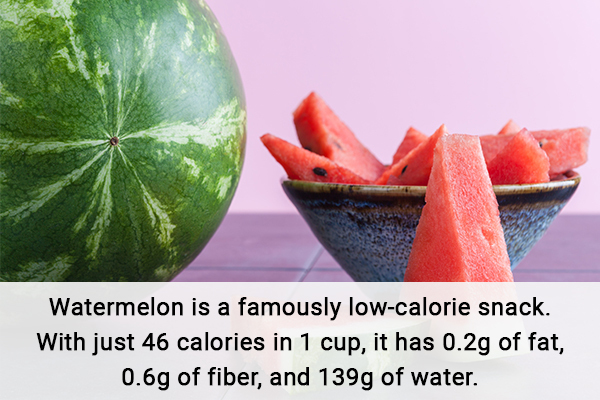
Watermelon is a famously low-calorie snack. With just 46 calories in 1 cup, it has 0.2 g of fat, 0.6 g of fiber, and 139 g of water. (7)
Foods that have high water content and low calories are considered “low density,” and studies show that consuming a diet rich in low-density foods can reduce energy intake, by either achieving early satiety or reducing overall calorie consumption. (8)
A study found that consuming 2 cups of fresh watermelon each day was helpful in reducing hunger, body weight, systolic blood pressure, and even some inches off the waist in individuals with overweight. (9)
4. Berries
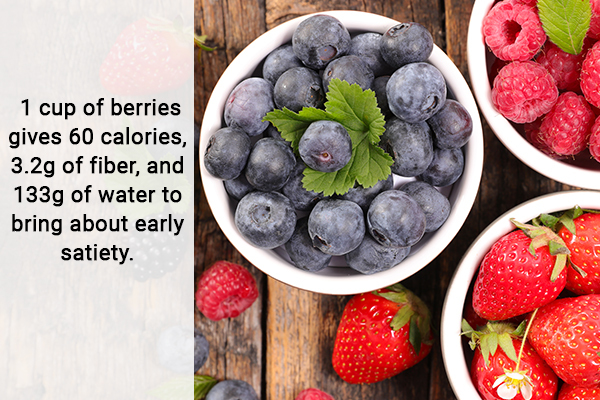
Berries are the perfect example of “good things come in small packages.”
Just 1 cup of berries (including blueberries, raspberries, blackberries, and strawberries) gives 60 calories, 3.2 g of fiber, and 133 g of water, making them a low-density food. (10)
A study that assessed satiety from consuming berries showed that consumption of even ½ cup of berries in the evening reduced the amount of food ingested later in the day. (11)
5. Apple
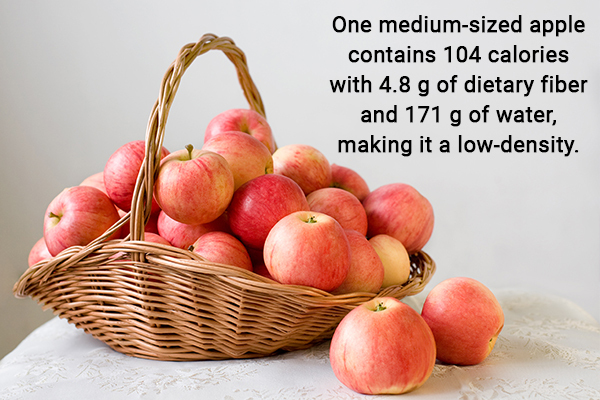
One medium-sized apple contains 104 calories with 4.8 g of dietary fiber and 171 g of water, making it yet another low-density food on this list. (12)
Apple is rich in fiber and antioxidants. (13) One of its fibers, pectin, has been known to slow down the emptying of stomach contents into the intestines, creating a feeling of fullness that persists for longer. (14)
Human studies have reported that consumption of whole apples can contribute to weight loss in individuals with overweight and obesity. (15)
6. Eggs
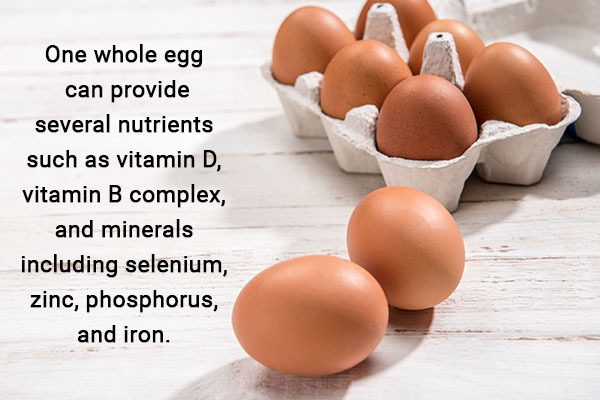
One whole egg can provide several nutrients such as vitamin D, vitamin B complex, and minerals including selenium, zinc, phosphorus, and iron. It contains just 72 calories with 6.3 g of protein and 1.6 g of fat. (16)
In a study done on overweight Australians, consumption of eggs for breakfast was marked by a reduced intake of energy and reduced feeling of hunger after the meal as compared to a breakfast of cereal. (17)
Thus, eggs can be considered a low-calorie food that can be included in a weight loss treatment plan.
7. Popcorn
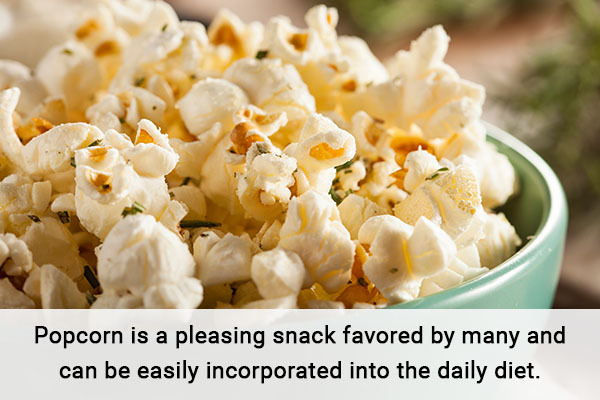
One cup of plain or salted popped corn only has 59 calories and 1.6 g of fat. (18)
In a study that compared satiety from popcorn versus potato chips, it was found that popcorn caused less hunger, increased satisfaction, and less likelihood of consuming food later. (19)
Popcorn is a pleasing snack favored by many and can be easily incorporated into the daily diet.
8. Chia seeds
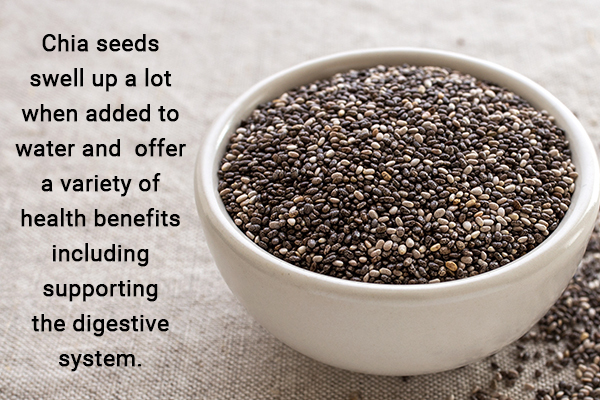
One ounce (28 g) of chia seeds has 151 calories, 5.2 g of protein, and 7.7 g of fiber. (20) Chia seeds swell up a lot when added to water and have a variety of health benefits including supporting the digestive system. (21)
Studies have reported that consumption of chia seed when added to yogurt can bring about short-term satiety in healthy adults. (22)
9. Fish
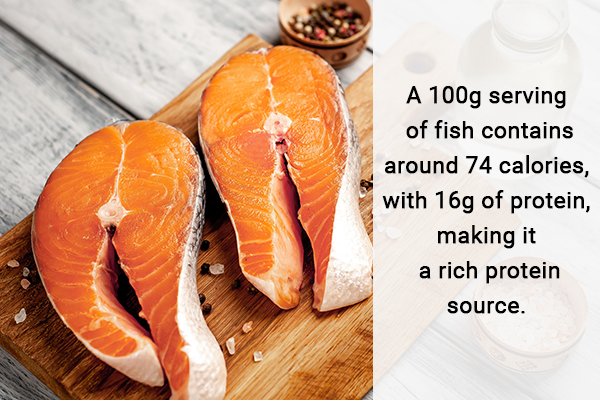
A 100 g serving of fish contains around 74 calories, with 16 g of protein, making it a rich protein source. (23)
High-protein diets are associated with an increase in weight loss. This can be attributed to the presence of amino acids that improve the hormones signaling satiety a feeling of fullness.
It also improves energy expenditure by increasing thermogenesis in the body. (24)
10. Lean meat
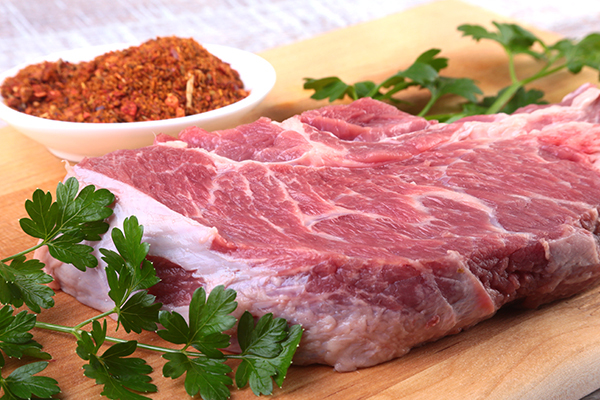
Lean meats include chicken, turkey, and low-fat cuts of beef or lamb. Just 100 g of chicken can give up to 20 g of protein and 111 calories, making it a great protein addition to a healthy person’s diet. (25)
Diets high in protein can be useful in preventing obesity and related diseases, type 2 diabetes, and heart diseases. (24) A healthy protein source in the diet can improve the feeling of fullness, resulting in lesser calorie consumption post meal. (24)
Precautions to Consider
While low-calorie foods seem like a healthy option for several people, consuming only low-calorie foods all day may lead to a reduced intake of energy, leading to fatigue and lethargy.
In addition, it is very important to follow a healthy well-balanced diet for children to ensure they receive all the nutrients needed to grow and be healthy.
Most-Asked Questions About Low-Calorie Foods
What are the benefits of a low-calorie diet?
Low-calorie diets can greatly benefit people suffering from overweight or obesity.
Additionally, it can improve the symptoms of chronic illnesses such as inflammation and insulin resistance. It can also help manage blood sugar levels in people suffering from diabetes and heart diseases.
Is a low-calorie diet beneficial for children?
Including some low-calorie foods as replacements for high-fat foods such as chips or pastries may be beneficial.
Many children suffer from overweight and obesity, which can be accompanied by additional conditions such as insulin resistance and diabetes. In such a case, a low-calorie diet may be beneficial.
Final Word
Low-calorie foods, in addition to being low in calories, are often rich in micronutrients and polyphenols that offer several health benefits that go beyond weight reduction and management of some symptoms of chronic illnesses.
Low-calorie foods primarily work by increasing the feeling of fullness and bringing about early satiety. These effects, in turn, prevent overeating, which is a crucial factor in gaining excess weight.
Caution needs to be exercised when going on an extremely low-calorie diet as it may cause fatigue and lethargy and affect the body’s normal physiological functions.
- Was this article helpful?
- YES, THANKS!NOT REALLY


